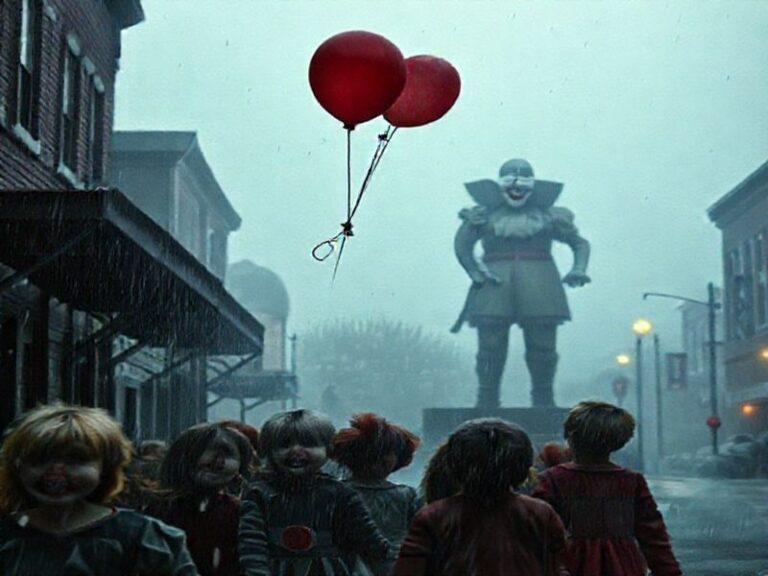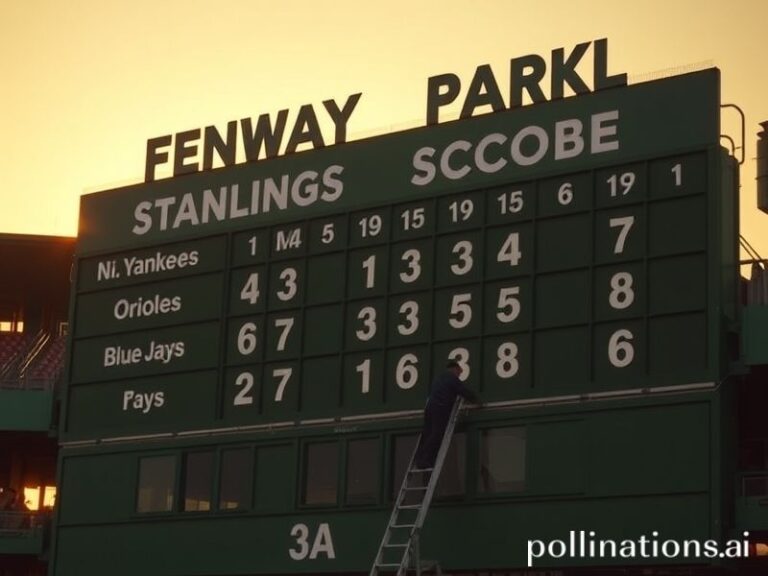Ted Lasso: The Feel-Good Export Keeping a Burning World on the Bench
The American Football Coach, the Global Catharsis, and the Collapsing Empire We All Pretend to Ignore
By “Still Employed” Correspondent, filed from a Copenhagen hotel that still charges for Wi-Fi
Ted Lasso, the fictional Kansas-born optimist who once coached Wichita State to a middling bowl game and now ministers to fictional AFC Richmond, has become the planet’s most unlikely soft-power export. While the real United States can’t evacuate Kabul without a tragicomic press conference, its streaming services can still export a moustachioed pep talk that makes the rest of us momentarily forget the methane bloom over Siberia.
In Nairobi, boda-boda drivers huddle around cracked phone screens to debate whether Roy Kent’s rage issues are quintessentially British or merely a universal cry against late-stage capitalism. In Seoul, marketing executives binge Season Two between 3 a.m. Zoom calls, quietly mouthing “Be curious, not judgmental” while preparing to lay off 200 subcontractors. Even in Moscow—where cynicism is the national sport—pirated subtitles circulate with the reverence once reserved for Beatles bootlegs. The show’s theme, as one St. Petersburg barista told me between double shifts, is “that kindness might be a winning strategy, which is hilarious because we all know it isn’t.”
The global embrace of Lassoism is best understood as a coping mechanism for people who can smell the dumpster fire but still need to Instagram dinner. Europe is re-arming, the Arctic is on sale, and the most reliable source of hope is a scripted locker-room speech delivered by a man whose biscuit recipe is basically butter and emotional manipulation. The United Nations could never get 190 countries to agree on carbon limits, but Apple TV+ just convinced them to synchronize their Friday night tears when Sam Obisanya writes his father. Soft power, indeed; it’s more like emotional imperialism wrapped in a PG-13 hug.
There is, of course, an economic subplot. The Premier League—already the world’s most efficient machine for laundering petro-dollars and oligarch regret—has found in Ted Lasso a free tourism ad. Visit Britain’s analytics show a 17 % spike in U.S. searches for “quaint pub near stadium where everyone forgives you instantly.” Meanwhile, the actual town of Richmond upon Thames reports a surge of Americans asking whether the Crown & Anchor serves gluten-free crisps. The locals, who’ve endured Brexit, austerity, and three prime ministers in a lettuce’s lifespan, smile politely while Googling “how to monetize sincerity.”
The show’s final bow coincided with the warmest spring on record, a coincidence not lost on our collective subconscious. When Ted tells his son back in Kansas that “doing the right thing is never the wrong thing,” the line trends on Twitter in 22 languages, most of them spoken in countries currently on fire or underwater. A friend in Buenos Aires confessed she rewinds that scene whenever inflation breaks another psychological ceiling. “It’s cheaper than therapy,” she said, “and the exchange rate is better.”
The cynical read—mine, obviously—is that Ted Lasso is not a story about believing in yourself; it’s a story about how desperate we are to believe anything. The writers know this. They gave us an entire season in which the protagonist’s relentless positivity verges on clinical delusion, then had the decency to let him admit he’s homesick, depressed, and possibly the wrong man for the job. In other words, the show’s final moral is that optimism without evidence is unsustainable, but sometimes you fake it until the credits roll. If that isn’t a metaphor for the 21st-century nation-state, I don’t know what is.
Still, the world keeps streaming. From refugee camps in Jordan to rooftop bars in Saigon, people press play on the off chance that a fictional football club can model the basic decency their own governments auctioned off years ago. And for 30 or 60 minutes, depending on your Internet speed, it almost works. Then the episode ends, the screen goes black, and the algorithm queues up something darker. But the biscuit tin lingers on the counter, half-eaten and improbably hopeful, like the Paris Agreement in a kitchen drawer—expired, slightly stale, but too sweet to throw away.







